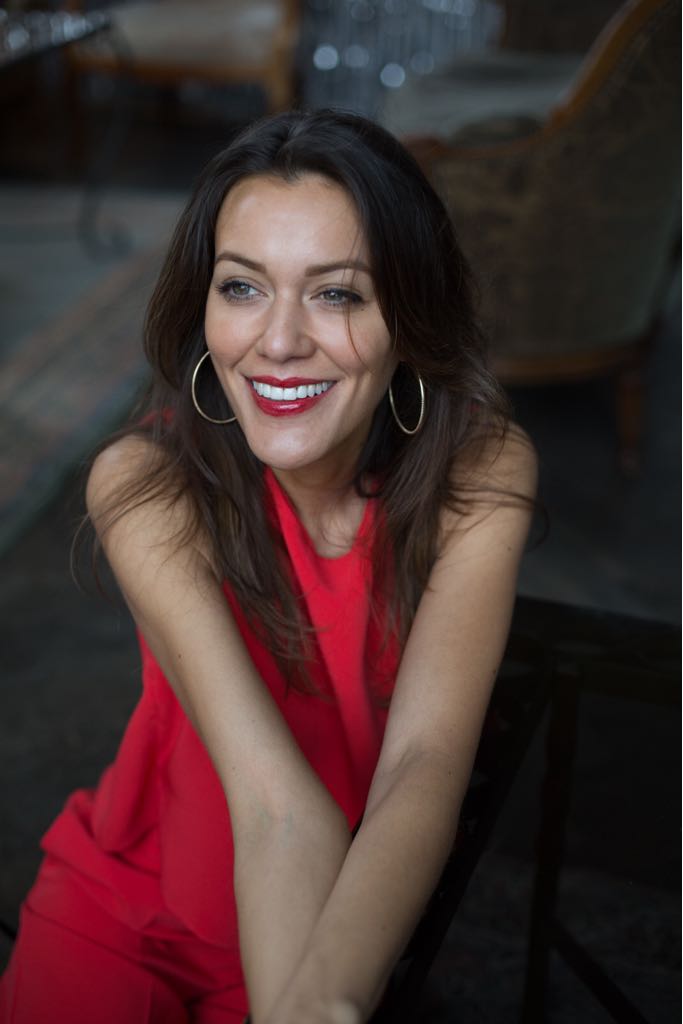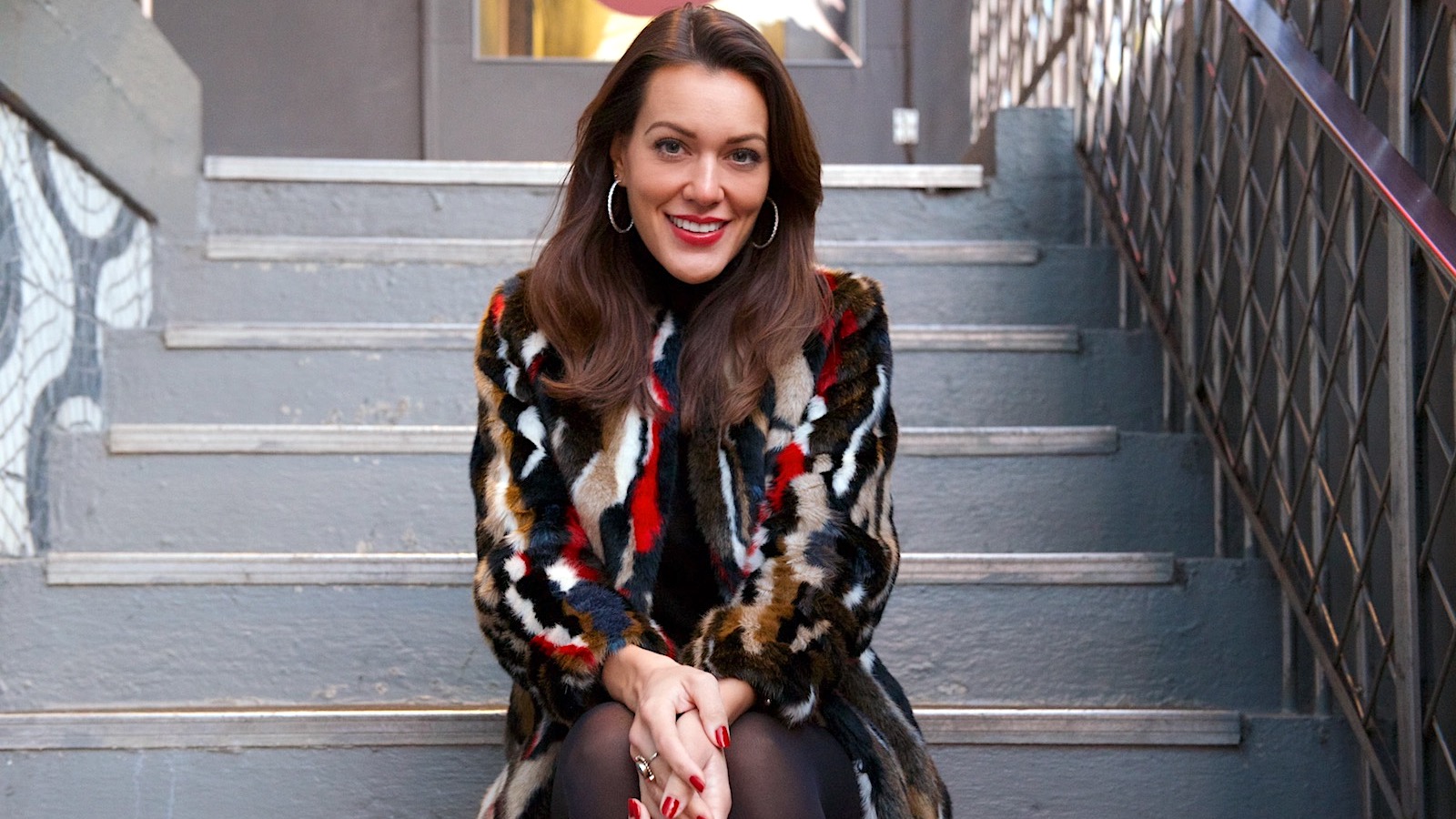
Marysol Fernandez On Movies and Preserving Her Father’s Legacy
February 26, 2018
On- or off-screen Marysol Fernández is a captivating figure in film. A classically-trained actress, she’s a fixture in a slew of movies and commercials, but also directs, produces and casts. We spoke to the Zurich-native about her most memorable movie moments, why her Bolivian heritage means so much to her, and her upcoming projects.
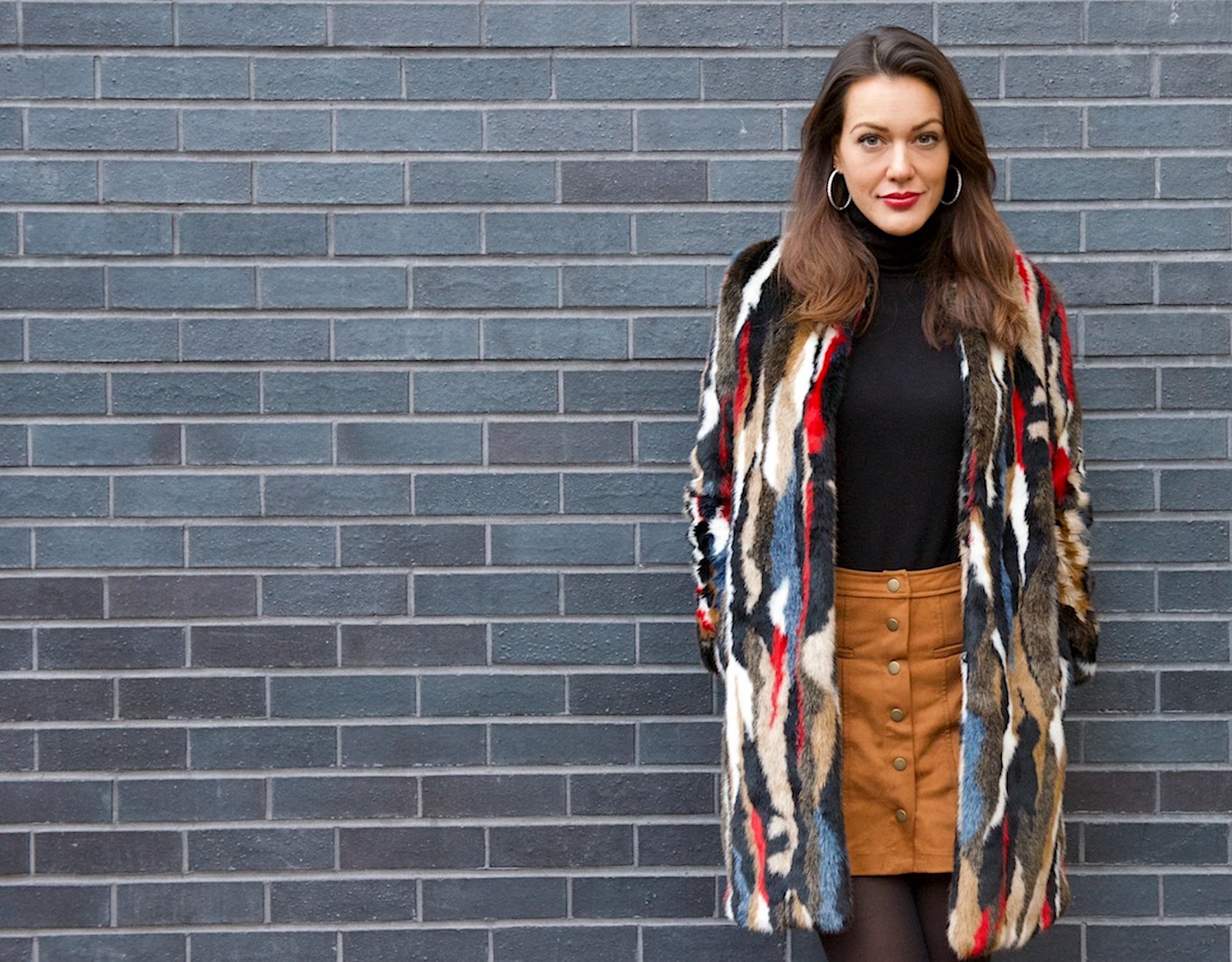
You juggle a lot of different projects, what does a typical week look like for you?
Marysol Fernández: There’s no typical week for me, every day is different. I work as an actress, and I oversee the casting for a lot of movies and TV ads. I also write scripts — people hire me for projects and I also write my own. I founded a production company last year called Wolfchild Production. I’m also currently working on a documentary about my father. And lastly, I freelance and work as a producer.
What drew you to the film genre?
I grew up on stage — I’m a trained dancer and was always performing as a child and young adult. I also played the violin for eight years professionally, performing both solos and as first violinist in orchestras. When I was 13, I went to a singing camp and got a role in a musical. As I was practicing for my role, I realized how much I enjoyed getting into character. I found it so exciting to portray a specific role for the entirety of a musical. That’s why I decided to go to L.A. when I finished high school to see if I would have any success with acting there. I quickly realized, however, that I was too young to be there. I was kind of shocked that no one was asking me about my acting and vocal training, they were all just asking me about my measurements and appearance. Of course, looks play a role in acting, but I was so passionate about acting as an art that it disappointed me. After that I decided to go to acting school and did the state exam to officially be a diploma-holding actress.
What have been some of your most memorable moments on camera?
I loved shooting for two months in the Swiss mountains with director Paolo Sorrentino. He had just won an Oscar for his movie La Grande Belleza and I worked with him on the film La Giovinezza. I worked on the project for months — I did all of the Swiss casting for the featured extras and smaller roles, but Sorrentino also wanted me to perform on camera. He always called me La Grande Dame. It was an unbelievable experience because I was on set with Sir Michael Caine, Paul Dano, Harvey Keitel, Rachel Weisz and Jane Fonda. It was incredible seeing them act and also being on camera with them. It was so educational and such a treat to work with this director.
One specific moment that stood out to me is when we shot one scene in ball gowns outdoors (this was in Flims, Switzerland in the winter, so it was freezing) but everyone was so focused that no one hardly noticed. There was a scene in which I was walking with the camera in front of me and there was a mime doing something, it was so beautiful that I started crying on camera. It was the perfect timing and Sorrentino was also really touched by that.
Was there a turning point for you when you realized you were also interested in working behind the camera?
I’m not sure if there was one specific moment in time. I’m just someone who doesn’t like to wait and likes getting stuff done myself. So as an actress it would be hard to do a casting and then wait to see if you got the role. There’s a lot of waiting in acting. I love to be creative and active. One of my first experiences in front of the camera was when I was 20. I loved this one producer and told her “if you ever need help I’m available.” She threw me into production headfirst, and I learned everything from her. That’s how I started working behind the scenes. I love storytelling whether it’s in front or behind the camera.
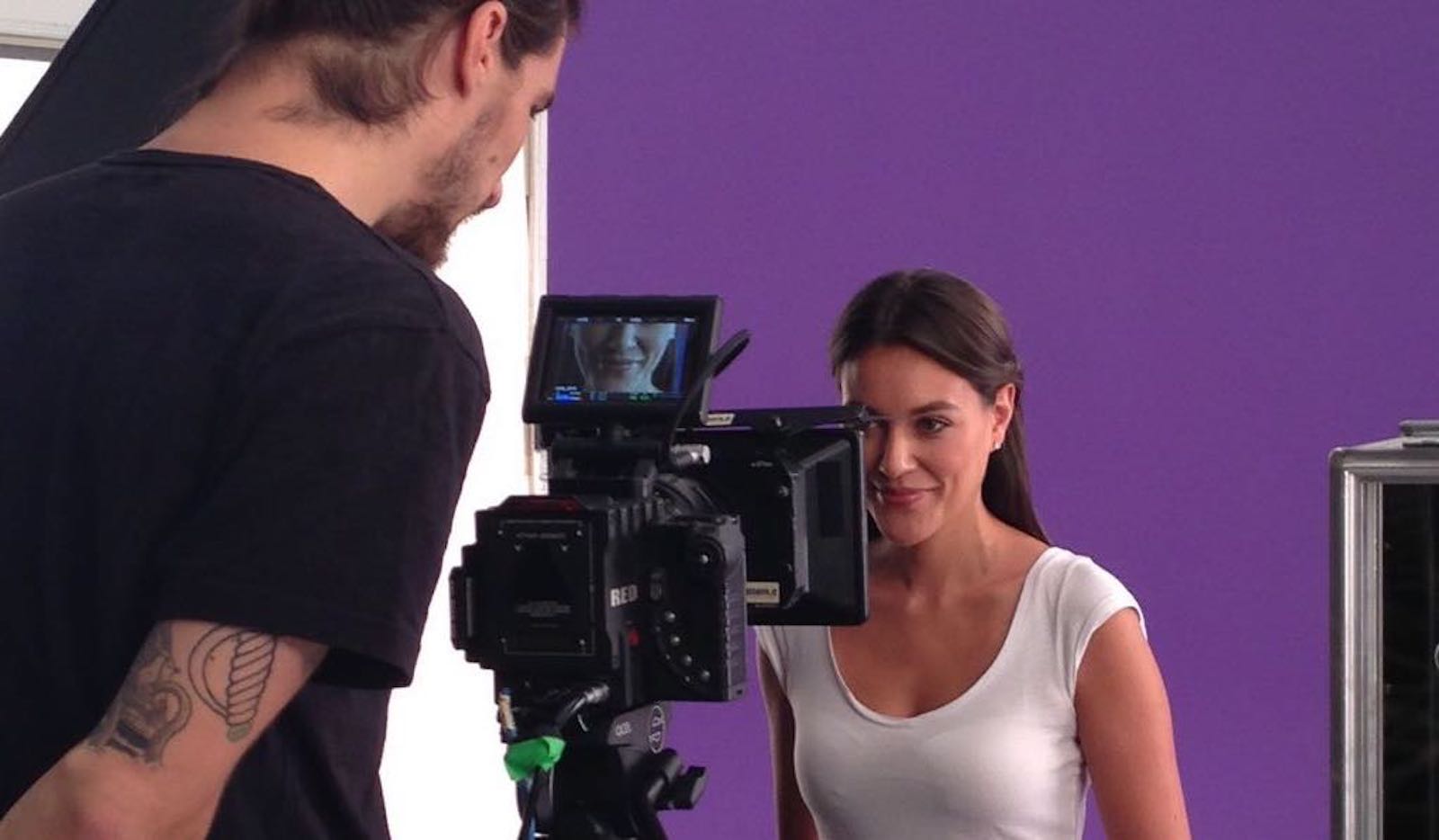
What can you tell us about your upcoming movie projects?
One is a documentary, I started working on it in 2013 with my dad in Bolivia and Chile. It’s about my father’s past. It’s been on hold but a famous director who believes in the project helped me get lots of contacts to complete the film. I hope to keep working on it and finish it, then get it into movie theaters. I’m also working on a fictional story set in Bolivia about a girl and I’m hoping to be there in May to work on both. I’m also working on a movie in L.A. and if that works out I’ll have my first Hollywood film role!
Your dad had a big impact on your life and had an interesting life story. Can you tell a bit about him?
My dad came to Switzerland as a political refugee in the ’70s from Bolivia. He was involved in politics at a young age, often in senior leadership positions. He was ready to fight together with Che Guevara but Guevara was arrested and murdered. In his diary they found a note about my dad, Guido Fernández, saying he was a good man and they needed to work closer together. Because of that the CIA started following him, arrested him three days later, then locked him up and tortured him every day for months. My dad survived and managed to flee to chile to the Atacama desert for three days and nights – crazy that he survived that since he didn’t have any water or food. He found shelter in Chile and went to university there until there was another political coup – then he was arrested and tortured again, eventually sentenced to death. He was brought to an island, La Isla Quiriquina, where he was supposed to be shot, but somehow bypassed that and became a refugee. The Swedish embassy helped get him out of Chile and he had a stopover in Switzerland where he lived ever since. He was always my hero, because he always stood up for justice and humanity, respecting all beings – humans, nature and animals. That’s something I learned from him. That and being able to fight for yourself.
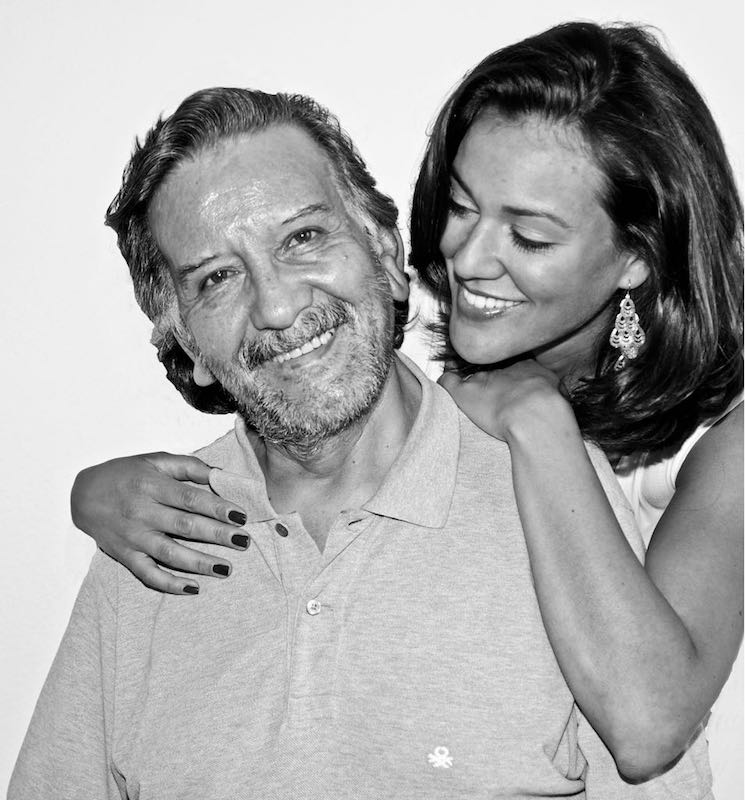
What experiences did you have traveling to Bolivia?
Bolivia is the poorest country in South America and it’s noticeable when you travel there. I’ve seen people create bricks out of limestone (mud) and build their own house which doesn’t have running water or electricity. In the winter it’s freezing there, especially in the elevated regions. Even though many people are impoverished, they are so generous, that’s something that really impressed me – their hospitality. When I first met that side of the family they immediately embraced me and were so warm. My dad taught me to not have a victim mentality. That’s very Bolivian, they are very proud of themselves and their culture even though they don’t have much. For example, many coca fields are being destroyed because of the war on drugs, but coca is part of culture there. People fight for their culture. They don’t have much but give so much, we could all learn from that.
What do you do in life to attain wellness and feel beautiful?
I love going running in the forest – I try to go ever day. That’s how I feel physically and mentally sharp, it’s like meditation for me. I’ve been a vegetarian forever. I love masks and love getting facials, as an actress my appearance is very important. And I love a spa day occasionally.
